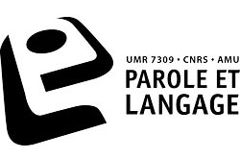Soutenance de thèse de doctorat
Vendredi 27 octobre 2023
14h Salle FRUMAM, Campus St Charles, AMU, Marseille + En ligne via Zoom
LIEN ZOOM : https://univ-amu-fr.zoom.us/j/4716639965
Mitja Nikolaus
(LPL-AMU)
Communicative Feedback in Language Acquisition
Sous la direction de Laurent Prévot
Jury :
M. Laurent PREVOT - Directeur de thèse
M. Abdellah FOURTASSI - Co-Directeur de thèse
Mme Raquel FERNÁNDEZ - Rapporteur
Mme Gabriella VIGLIOCCO - Rapporteur
M. Okko RÄSÄNEN - Examinateur
M. Philippe BLACHE - Président
Résumé :
Children start to communicate and use language in social interactions from a very young age. This allows them to experiment with their developing linguistic knowledge and receive valuable feedback from their interlocutors. While research in language acquisition has focused a great deal on children's ability to learn from the linguistic input or social cues, little work, in comparison, has investigated the nature and role of Communicative Feedback, a process that results from children and caregivers trying to coordinate mutual understanding. By drawing on insights from theories of communicative coordination we can formalize a new mechanism for language acquisition: We argue that children can improve their linguistic knowledge in conversation by leveraging explicit or implicit signals of communication success or failure. Based on this hypothesis, we conducted two corpus studies that highlight the role of Communicative Feedback as a mechanism supporting the production of intelligible speech, as well as the acquisition of the grammar of one's native language. Finally, we design and evaluate computational models that instantiate a feedback-based learning mechanism in addition to statistical learning and demonstrate that such feedback can improve the acquisition of semantics. Communicative Feedback provides a common framework for several lines of research in child development and will enable us to obtain a more complete understanding of language acquisition within and through social interaction.
Précédée de trois interventions proposées par des membres du jury (9h00 à 11h00) :
Raquel Fernández (UvA): A Computational Model of Audience Design
In conversation, we decide what to say and how to say it on the basis of what we share with our dialogue partner. Yet, it is an open question how such accommodation can be modelled in artificial agents. Taking a visually grounded referential game as test bed, in this talk I will present recent work where we use multimodal deep neural networks to model audience-aware adaptation between dialogue participants with asymmetric knowledge.
Okko Räsänen (TAU): Making computers learn language like infants: what, why and how
Infants learn their native language by interacting with their caregivers and environments and without explicit language instruction. While the process may superficially appear almost as effortless, acquiring a language from sensorimotor experiences with the external world is an enormously complicated cognitive task. Despite decades of research effort, we still lack holistic, accurate, and testable models of how the infants succeed in bootstrapping their language skills. In this talk, I will briefly introduce the idea of computational modeling of early language development and motivate its potential in developing and testing holistic accounts of the development process. I will then describe the theoretical basis we use in our own modeling research together with some examples of related modeling work. The examples illustrate how early language development can be modeled without the learner ever explicitly targeting at learning of linguistic units, such as phonemes or words.
Gabriella Vigliocco (UCL): Multimodal Language production and Comprehension
The ecology of language learning and use is face-to-face interaction. In face-to-face communication speakers produce a wealth of multimodal behaviours that can support their addresses comprehension. In the talk I will first present data from a corpus (ECOLANG) that show how speakers prosodically modulate their speech and produce gestures in a way that favours communicative success both when addressing children or other adults. In the second part of my talk, I will turn to the comprehender and present experimental electrophysiological results demonstrating that multimodal cues (prosody, gesture but also mouth patterns) contribute to discourse processing.
Soutenance et séminaires ouverts à tout le monde








